 W
WShelley Leopold Laurence Scarlett, 5th Baron Abinger was a British peer and military officer.
 W
WLieutenant-Colonel Tom Edwin Adlam VC was an English recipient of the Victoria Cross, the highest and most prestigious award for gallantry in the face of the enemy that can be awarded to British and Commonwealth forces. A soldier with The Bedfordshire Regiment during the First World War, he was awarded the Victoria Cross for his actions on 27 September 1916, during the Battle of the Somme. He later served in the Second World War.
 W
WWalter Allason was an award winning swimmer, diver, Brigadier-General and World War I soldier.
 W
WArthur Oliver Villiers Russell, 2nd Baron Ampthill was a British peer, rower, and civil servant. He served as Governor of Madras from October 1900 to February 1906, and as acting Viceroy of India from April to December 1904.
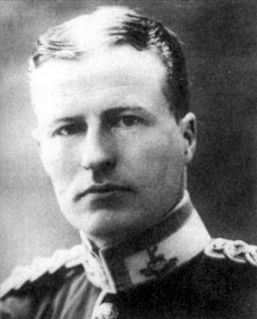 W
WEllis Ashmead-Bartlett was an English war correspondent during the First World War. Through his reporting of the Battle of Gallipoli, Ashmead-Bartlett was instrumental in the birth of the Anzac legend which still dominates military history in Australia and New Zealand. Through his outspoken criticism of the conduct of the campaign, he was instrumental in bringing about the dismissal of the British commander-in-chief, Sir Ian Hamilton – an event that led to the evacuation of British forces from the Gallipoli peninsula.
 W
WColonel Alexander Campbell of Possil (1754–1849) entered the army as an ensign in the 42nd Regiment in April 1769, and obtained a lieutenancy in the 2nd Battalion Royals the following year in Menorca. He moved to the 62nd regiment later that year in Ireland and went with the regiment to Canada, where, as a captain of light infantry under General Carleton, he fought in the campaigns of 1776 and 1777 with General Burgoyne in the American War of Independence.
 W
WLieutenant-Colonel John Stanhope Collings-Wells VC DSO was an English recipient of the Victoria Cross, the highest and most prestigious award for gallantry in the face of the enemy that can be awarded to British and Commonwealth forces. He was educated at Uppingham School and Christ Church, Oxford, where he joined the Apollo University Lodge.
 W
WMajor-General Sir John George Dartnell KCB, CMG was a British soldier and police officer who was the founder and first Commandant of the Natal Mounted Police. A veteran of the Indian Mutiny, he saw action in every campaign in South Africa from 1879 including the Zulu War and the First and Second Boer Wars.
 W
WLieutenant General Sir Reginald Francis Stewart Denning was a British Army staff officer and administrator.
 W
WJohn William Henry Tyler Douglas was an English cricketer who was active in the early decades of the twentieth century. Douglas was an all-rounder who played for Essex County Cricket Club from 1901 to 1928 and captained the county from 1911 to 1928. He also played for England and captained the England team both before and after the First World War with markedly different success. As well as playing cricket, Douglas was a notable amateur boxer who won the middleweight gold medal at the 1908 Olympic Games.
 W
WGeorge Fermor, 2nd Earl of Pomfret (1722–1785), styled Viscount Leominster or Lempster until 1753, of Easton Neston house, Northamptonshire was Earl of Pomfret in the Peerage of Great Britain.
 W
WBrigadier Charles Calveley Foss, was an English recipient of the Victoria Cross (VC), the highest and most prestigious award for gallantry in the face of the enemy that can be awarded to British and Commonwealth forces. A professional soldier in the British Army, he was awarded the VC in 1915 for his actions during the Battle of Neuve Chapelle.
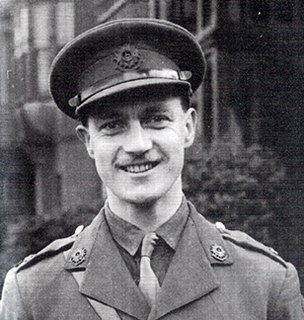 W
WJames Douglas Grafton, was a producer, writer and theatrical agent. He served in World War II as an officer in the Bedfordshire and Hertfordshire Regiment and was awarded the Military Cross for his actions during Operation Market Garden.
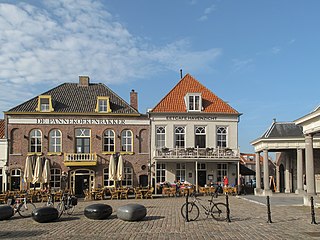 W
WLieutenant General Roger Handasyd, also spelt Handaside, 11 March 1689 to 4 January 1763, was an English military officer and Member of Parliament for different seats between 1722 and 1754.
 W
WFrederick William Hedges was a British recipient of the Victoria Cross, the highest and most prestigious award for gallantry in the face of the enemy that can be awarded to British and Commonwealth forces. A soldier with The Bedfordshire Regiment during the First World War, he was awarded the VC for his actions on 24 October 1918, during the Battle of the Selle.
 W
WMajor John Mackenzie, VC, DCM was a Scottish recipient of the Victoria Cross, the highest and most prestigious award for gallantry in the face of the enemy that can be awarded to British and Commonwealth forces.
 W
WGeorge Pilkington Mills was the dominant English racing cyclist of his generation, and winner of the inaugural Bordeaux–Paris cycle race. He frequently rode from Land's End to John o' Groats, holding the world record time on six occasions between 1886 and 1895. He was a member of the Anfield and North Road cycling clubs. He later won races and broke records as a car racer and motorcycle rider.
 W
WSir Frank Hillyard Newnes was a British publisher, businessman and Liberal politician.
 W
WMontagu Collet Norman, 1st Baron Norman DSO PC was an English banker, best known for his role as the Governor of the Bank of England from 1920 to 1944.
 W
WSir Frederick Wolff Ogilvie FRSE was a British broadcasting executive and university administrator, who was Director-General of the BBC from 19 July 1938 to 26 January 1942, and was succeeded by joint Directors-General Cecil Graves and Robert W. Foot. He also served as Vice-Chancellor of Queen's University Belfast from 1934 to 1938. He was knighted by King George VI on 10 June 1942.
 W
WAir Vice Marshal Augustus Henry Orlebar, was a British Army and Royal Air Force officer who served in both world wars.
 W
WLieutenant-General Arthur Ernest Percival, was a senior British Army officer. He saw service in the First World War and built a successful military career during the interwar period but is most noted for his defeat in the Second World War, when he commanded British Commonwealth forces during the Japanese Malayan Campaign and the subsequent Battle of Singapore.
 W
WMajor-General Thomas David Pilcher, CB was a British Army officer, who commanded a mounted infantry unit in the Second Boer War and the 17th (Northern) Division during the First World War, before being removed from command in disgrace during the Battle of the Somme.
 W
WCyril Probyn Napier Raikes (1875–1963) was a British Army officer who was awarded the Military Cross in the World War I Mesopotamian campaign flying in the British army's Royal Engineers monitoring the oil pipelines there. He had previously fought in the Boer War.
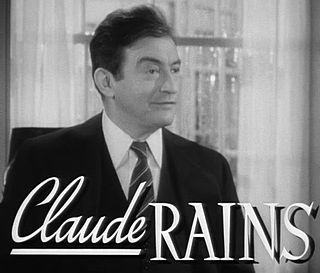 W
WWilliam Claude Rains was a British actor whose career spanned almost seven decades. After his American film debut as Dr. Jack Griffin in The Invisible Man (1933), he appeared in such highly regarded films as The Adventures of Robin Hood (1938), Mr. Smith Goes to Washington (1939), The Wolf Man (1941), Casablanca and Kings Row, Notorious (1946), Lawrence of Arabia (1962), and The Greatest Story Ever Told (1965).
 W
WMajor George Murray Rolland VC was a recipient of the Victoria Cross, the highest and most prestigious award for gallantry in the face of the enemy that can be awarded to British and Commonwealth forces.
 W
WJames Ogilvie-Grant, 11th Earl of Seafield, DL, briefly known as Viscount Reidhaven in 1888, was a Scottish nobleman.
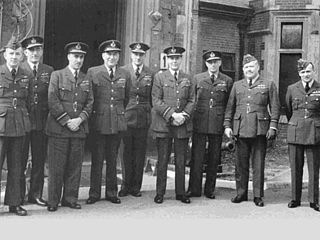 W
WAir Vice Marshal Sturley Philip Simpson, was a senior Royal Air Force commander.
 W
WHenry William Williamson was an English author who wrote novels concerned with wildlife, English social history and ruralism. He was awarded the Hawthornden Prize for literature in 1928 for his book Tarka the Otter.